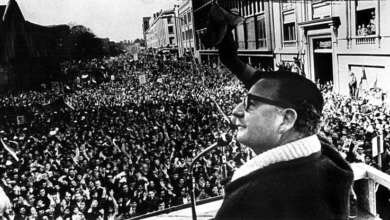The people’s resistance against rampant corruption in the Honduran government continues as thousands of people are protesting and demanding the ouster of President Juan Orlando Hernandez. In addition to embezzlement, Hernandez’s government has taken anti-worker measures such as privatization and regressive taxation.
Outraged Hondurans have been taking to the streets of Tegucigalpa, the country’s capitol, and other cities demanding President Hernandez resign and for the U.S. government to cease its interference. Hernandez’s National Party is notoriously corrupt and is accused of embezzling up to $300 million from the Honduran Social Security Institute (IHSS) and using this money to rig the 2013 election in its favor.
Mobilizations started May 29, when 5,000 people marched in front of the social security office while holding candles as a sign of mourning for the death of 3,000 people and five children due to lack of health care. These demonstrations have grown in both size and intensity, with tens of thousands taking to the streets on a sustained basis.
Honduras today has one of the most volatile and corrupt governments in the world. The country’s problems greatly intensified after President Manuel Zelaya was overthrown in a military coup on June 28, 2009. The year before, Honduras joined the Bolivarian Alliance for the Peoples of Our America (ALBA), which was founded by Cuba and Venezuela in Havana on December 14, 2004. Zelaya was elected President of Honduras in 2006.
The United States supported the coup and backed the regime of Roberto Michelatti, who replaced Zelaya. The Obama administration continues to ignore the massive violence and corruption in Honduras. The U.S. government continues to pour hundreds of millions of dollars of military funding into the Central American Regional Security Initiative (CARSI), much of which goes to Honduras. Under this funding program, U.S. resources are used to train repressive Central American police and military forces.
Hernandez’s National Party, in coordination with the police, has attempted to silence the opposition. Honduras’ congress, which is dominated by the right wing, has refused to take action. Furthermore, the right wing ousted four judges on the Supreme Court and the Attorney General in 2013.
The anti-corruption struggle has given new energy to the broad resistance movement that emerged after the coup. The Liberty and Refoundation Party (Libre), set up by progressive anti-coup forces and led by former President Zelaya, is supporting the movement. As the demonstrations continue and grow, the people are continuing to make it clear that they refuse to accept a corrupt, U.S.-backed regime.






